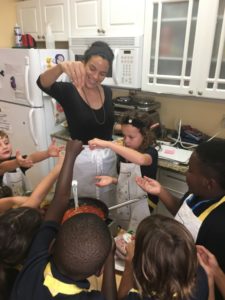 Hayley Lewis, a former public school teacher, wrote an important piece called, “Why I quit teaching in the public school system (it wasn’t just COVID).”
Hayley Lewis, a former public school teacher, wrote an important piece called, “Why I quit teaching in the public school system (it wasn’t just COVID).”
Here is an excerpt:
The American public-school system is beyond repair. I honestly don’t know where you even begin attempting to fix a system that’s so systematically flawed. Policies are made by those who haven’t been in a classroom in years, if at all, and show the extreme disconnect between the theoretical and the everyday reality that is the life of a teacher and their students.
The chances of having a high-quality curriculum are next to nothing, and if you’re lucky enough to have something that’s worthwhile, there are so many other hoops to jump through and issues that arise, it makes it virtually impossible to teach effectively and to truly prioritize the learning of children.
The quality of public education, like anything, varies widely. Many of the most dedicated and successful, and yes, even the most innovative educators I have had the pleasure of meeting, work in the district system. Like anything with widely varying quality the well-to-do tend to get the better part of it, and the poor the worst. That’s why it is vital to address equity concerns in the design of choice programs.
The “better part of” something, however, doesn’t ensure that it is actually high quality. You should read Lewis’ entire piece, but in essence, she describes a work environment in which high-quality instruction happens in only limited spurts and even then, despite the system rather than because of it.
Large numbers of students in classrooms make it nearly impossible to provide differentiated instruction — the quantity of children is just too high to get to in a day. Teaching five subjects to 30 different children, all with varying levels and learning styles is nearly impossible in a perfect world scenario.
But throw in classroom management, heightened behavior issues, standardized assessments and other requirements that have no immediate impact on real learning, and the chance of truly meeting the unique needs of a diverse group of students is next to nothing.
What to do about this? How about starting over, as BBI International, a micro-school in Pompano Beach, Florida, did. You can read the details here.

Teaching five subjects to 30 different children, all with varying levels and learning styles, as Lewis described it, may be a task enhanced by technology, while the application of knowledge occurs in small in-person learning communities. Large elements of a high-quality curriculum can be delivered live by a single digital faculty, while in-person instructors lead a related set of student projects – science experiments, theatrical productions, student debates and much more.
Rather than remaining an airy dream, innovative educators currently are educating students in this fashion, and the demand is growing.
If you want a spot in the legacy system Lewis describes, it will always be available to you. It takes a system of millions to hold teachers like Hayley Lewis back. The funding for that system is guaranteed in state constitutions. It’s a system well designed to maximize adult employment, including lots of people who make it next to impossible for dedicated people like Lewis to do their jobs.
The system is, alas, poorly designed to deliver education to children. Having experienced the inability to serve from within dysfunction, Lewis concludes:
I’m not sure where this new path will take me, but I know that I have a duty to make this world a better place, and that was not happening where I was before. It’s my deepest hope that I can pave a new way and be an example to future educators, showing them that it’s ultimately worth the sacrifice to give children the quality education and love they all deserve.
The kids still need you, Ms. Lewis, and a system worthier of your dedication is being constructed. I hope you’ll be among those to mold the future to decide the shape of things to come.


